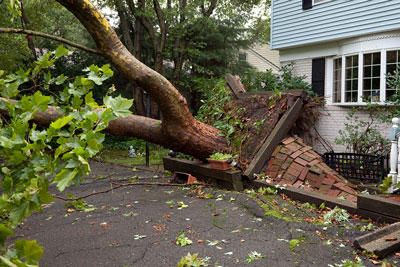 Trees add a lot to a community and neighborhood in North Carolina, and they even enhance the value of the properties they inhabit. But if not properly maintained, they can cause safety issues, increase the risk of fire, damage homes, interfere with power lines or plumbing; or become diseased and even die. Whether your trees are new, young or mature, don't leave their health up to chance. Here are some ways to maintain trees on your property.
Trees add a lot to a community and neighborhood in North Carolina, and they even enhance the value of the properties they inhabit. But if not properly maintained, they can cause safety issues, increase the risk of fire, damage homes, interfere with power lines or plumbing; or become diseased and even die. Whether your trees are new, young or mature, don't leave their health up to chance. Here are some ways to maintain trees on your property.
Get to know your trees:
Even if you have a tree in your yard that is doing just fine, that you have never had to worry about, it's good to have an understanding of what that species needs to thrive. That way, if conditions change or the tree experiences problems, you have a place to start. Hiring a professional arborist to inspect your trees and help you to understand how to care for them is a great place to start.
Check for problems:
Regularly inspect your trees for damage, mushrooms or other growths, diseased-looking bark, holes or dead limbs. Pay special attention to branches that overhang your home or sidewalks if these limbs are not in good shape they can fall and damage your home or landscape or, worse, hurt someone.
Keep it moist:
Drought can damage or even kill the hardiest of trees, so make sure that even mature trees are watered, especially in hot weather. Don't water trees right at the base (which can cause rot); instead, water the soil around the tree so that it can evenly work its way down to the roots. Mulching trees is another way to keep your trees cool, making it less likely the roots will dry out. Mulch will also help to replenish the nutrients in the soil.
Prune properly:
Pruning a tree keeps it healthy and looking sharp, and protects your home as well as the safety of your family and neighbors. Only trim a tree yourself if you understand how to do it properly and have the right equipment.
Dealing with damage:
If a tree falls on your property and causes damage, the repairs may or may not be covered by insurance (often depending on what caused the tree to fall). In addition, if you fail to maintain a tree on your property and it damages your neighbor's property, you might be liable. Check with your insurance agent so that you understand your obligations and under what circumstances any damage would be covered. Make sure to contact your agent right away if any damage does occur.
When to call in a professional:
If you're unsure of how to care for your trees; if they need serious work; or if the work to be done is at a considerable height it's probably best to call in a professional. Make sure the arborist or tree service you choose is licensed and insured.
For all of your home insurance questions, call or contact Litaker Insurance today.
